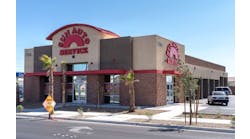Through Hisey’s experiences at Nissan, he’s seen the industry’s technician shortage firsthand, and has brainstormed a variety of ways to combat it. He believes that elevating tech certification to bachelor’s degree status would solve many of these problems.
Hisey recently discussed with Automotive News the idea for technicians to have a four-year degree program, which he believes would increase the appeal of the trade, and reduce parent’s opposition to their children choosing auto repair as a profession. Hisey expanded on the theory with Ratchet+Wrench.
How did you come up with this idea?
The idea came to me during a technician survey feedback session with Carlisle. We were discussing the technician shortage and how the job was viewed as a less-than-desirable career path because most parents want their kids to get a four-year degree. I thought out loud, “Turn automotive into a career with a four-year degree program.”
Following the release of the article, I have since learned there are a handful of colleges that offer bachelor’s degrees in automotive technology. This is welcome news. However, it is not mainstream, and I imagine most employers in the automotive field have not caught up with the idea they should look for and recruit degreed candidates. When I was a field technical training instructor I noticed, even back in 2008, that I was having deeper discussions about ECM reprograms and how to navigate a Windows laptop than I was about diagnosing a misfire. So yes, STEAM is becoming a significant factor in repairing automobiles.
In your eyes, what are the major barriers to getting young people excited about the automotive industry? How would introducing a four-year degree in automotive repair be a successful way to combat that?
First, I think societal bias is a major obstacle. You can brag about being a doctor, lawyer, entomologist, or even a swine scientist, but who brags about being a mechanic?
Second, knowing how technicians are paid is another barrier to having new technicians get excited about working in the auto industry. Technicians are paid on a flat rate which is based on a depression-era pay system that has survived until today.
Third, the environment of most shops, although they are getting better, are less than attractive places to build a career. If you have ever walked through an average automotive repair shop, then you know what I mean. The floors are usually littered with old parts, it’s noisy, usually not climate controlled, and generally “grimy.” Whenever you think about a career, you don’t think about a grimy repair shop, you think about cubicles and desks.
With vehicles becoming increasingly complex, what types of content would students need to learn to complete a degree like this? What topics do you think they would need to study?
As mentioned previously, STEAM is an area important for technicians to understand. There are so many opportunities in areas of study that are never touched on in basic auto class, like how to properly extract a broken stud, to how to manage a budget when making a living on flat rate. Or how to properly document a repair order and what is legally required for a proper repair order—getting into what are the customer’s rights, and what are your rights as a technician. I think the educators for automotive technology do an excellent job at teaching proper diagnosis, but they fall down when it comes to the myriad responsibilities surrounding a technician on a daily basis that have little to do with the actual repair.
What would be the first steps to implementing a program like this? Would it have to be implemented gradually, with a few pilot programs?
As I mentioned earlier, there are a handful of institutions that offer 4-year degrees in automotive technology, like SIU, so I think it has been “piloted” already. My assumption is that most of the graduates of SIU don’t work in a shop, they go to work on the corporate side for manufacturers or suppliers.
Have you seen any steps to actually make this process happen? Has there been any legislation introduced that would lay the groundwork for programs like this?
No, and not to my knowledge.


